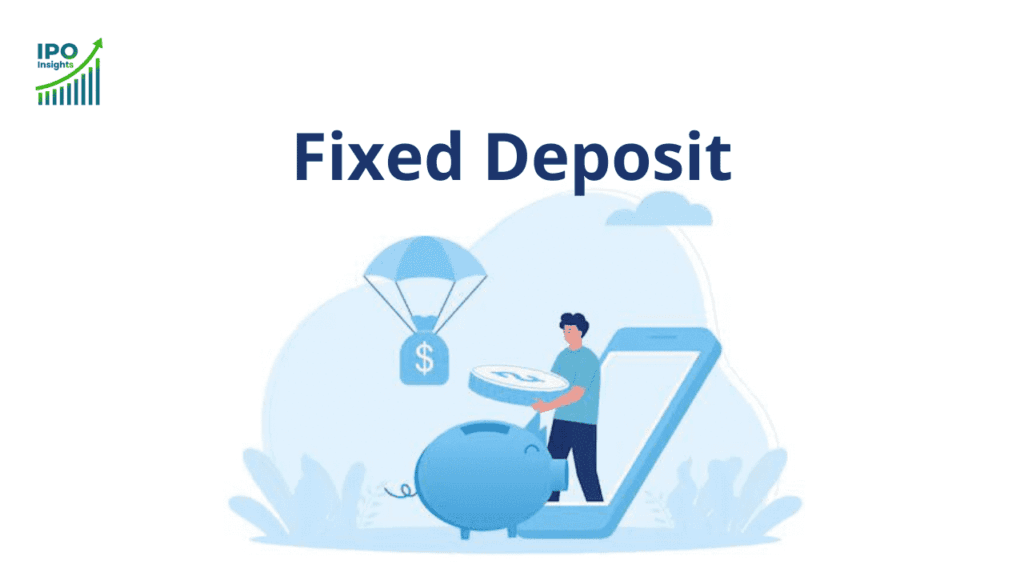Fixed Deposits (FDs) are a popular investment option in India, offering a secure and relatively predictable return on investment. They involve depositing a fixed sum of money with a bank, non-banking financial company (NBFC), or post office for a predetermined period.
Key Features of FDs:
- Guaranteed Returns: Unlike stocks or mutual funds, FDs provide assured returns, making them a suitable choice for risk-averse investors.
- Flexible Tenures: FDs offer a wide range of tenures, from a few days to several years, allowing investors to choose a timeframe that aligns with their investment goals.
- Competitive Interest Rates: While not as high as some other investment options, FDs generally offer higher interest rates than regular savings accounts.
- Tax Benefits: Certain FDs, such as tax-saving FDs, offer tax deductions on the principal amount invested.
Certainly, here’s an improved version of the article on Fixed Deposits, along with a meta title, description, and focus keyword:
Meta Title: Fixed Deposit in India: A Complete Guide for Investors
Meta Description: Learn everything about Fixed Deposits (FDs) in India: types, benefits, risks, interest rates, eligibility, taxation, and more. Find the best FD options for your investment goals.
Focus Keyword: Fixed Deposit in India
Fixed Deposits (FDs) in India: A Comprehensive Guide
Fixed Deposits (FDs) are a popular investment option in India, offering a secure and relatively predictable return on investment. They involve depositing a fixed sum of money with a bank, non-banking financial company (NBFC), or post office for a predetermined period.
Key Features of FDs:
- Guaranteed Returns: Unlike stocks or mutual funds, FDs provide assured returns, making them a suitable choice for risk-averse investors.
- Flexible Tenures: FDs offer a wide range of tenures, from a few days to several years, allowing investors to choose a timeframe that aligns with their investment goals.
- Competitive Interest Rates: While not as high as some other investment options, FDs generally offer higher interest rates than regular savings accounts.
- Tax Benefits: Certain FDs, such as tax-saving FDs, offer tax deductions on the principal amount invested.
Types of FDs:
- Standard FDs: The most common type, offering a fixed deposit for a specific period with interest paid at maturity or periodically.
- Senior Citizen FDs: Offer higher interest rates to individuals aged 60 and above.
- Tax-Saving FDs: Offer tax benefits under Section 80C of the Income Tax Act with a lock-in period of 5 years.
- Cumulative FDs: Interest is compounded and paid at maturity along with the principal.
- Non-Cumulative FDs: Interest is paid periodically to the investor.
- Flexi FDs: Link your FD to your savings account, allowing for easy withdrawals and deposits.
- NRO/NRE FDs: Specifically designed for Non-Resident Indians (NRIs).
Eligibility Criteria:
- Indian Residents
- NRIs
- Individuals, Joint Accounts, Companies, and more
Required Documents:
- Identity Proof: PAN Card, Aadhaar Card, Voter ID, Passport, Driving License
- Address Proof: Utility bills, Rent Agreement, Passport
Interest Rates:
- Interest rates vary depending on the bank, tenure, and investor profile (e.g., senior citizens).
- Check with your bank or NBFC for the latest interest rates.
Benefits of Investing in FDs:
- Low Risk: Minimal risk of capital loss.
- Predictable Returns: Guaranteed returns provide financial stability.
- Liquidity: Some options offer flexibility in terms of withdrawals.
- Tax Benefits: Tax-saving FDs offer tax deductions.
Limitations of FDs:
- Lower Returns Compared to Equity: Returns may not keep pace with inflation.
- Liquidity Constraints: Early withdrawals may attract penalties.
- Fixed Returns: Interest rates are fixed, not linked to market performance.
- Taxation: Interest income is taxable.
Loan Against FD:
- You can avail of a loan against your FD, up to a certain percentage of the deposit amount.
- Interest rates on loans against FDs are generally lower than other unsecured loans.
Who Should Invest in FDs?
- Risk-averse investors seeking a safe and secure investment option.
- Individuals with short-term financial goals.
- Those looking for a stable source of income.
- Emergency funds.
Taxation on FD Income:
- Interest income from FDs is taxable under the head “Income from Other Sources.”
- TDS (Tax Deducted at Source) is applicable on interest income exceeding certain thresholds.
Key Takeaways:
- FDs are a valuable investment option for those seeking safety and stability.
- Choose the type of FD that best suits your investment goals and risk tolerance.
- Compare interest rates offered by different banks and NBFCs.
- Consider the lock-in period and penalty charges for early withdrawals.
- Consult with a financial advisor to make informed investment decisions.
FAQs – Fixed Deposit in India
What is a Fixed Deposit (FD)?
A fixed deposit is an investment instrument where you deposit a fixed sum of money with a bank, NBFC, or post office for a predetermined period.
What are the key benefits of investing in FDs?
Guaranteed returns
Low risk of capital loss
Flexible tenures
Competitive interest rates
Potential for tax benefits (for specific FD types)
What are the different types of FDs available?
Standard FDs, Senior Citizen FDs, Tax-Saving FDs, Cumulative FDs, Non-Cumulative FDs, Flexi FDs, NRO/NRE FDs
What are the eligibility criteria for opening an FD?
Indian Residents, NRIs, Individuals, Joint Accounts, Companies, etc.
What documents are required to open an FD?
Identity Proof (PAN Card, Aadhaar Card, etc.)
Address Proof (Utility bills, Passport, etc.)
Age Proof (for senior citizens)
What are the typical interest rates offered on FDs?
Interest rates vary depending on the bank, tenure, and investor profile. Check with your bank for the latest rates.
What are the tax implications of FD income?
Interest income from FDs is taxable under “Income from Other Sources.” TDS is applicable on interest income exceeding certain limits.
Can I withdraw money from my FD before maturity?
Yes, but early withdrawals may attract penalties.
Can I get a loan against my FD?
Yes, you can avail a loan against your FD, up to a certain percentage of the deposit amount.
Who should consider investing in FDs?
Risk-averse investors, individuals with short-term financial goals, those seeking a stable source of income, and those building an emergency fund.
Disclaimer: This information is for general guidance only and should not be considered financial advice. Consult with a qualified financial advisor for personalized investment recommendations.



